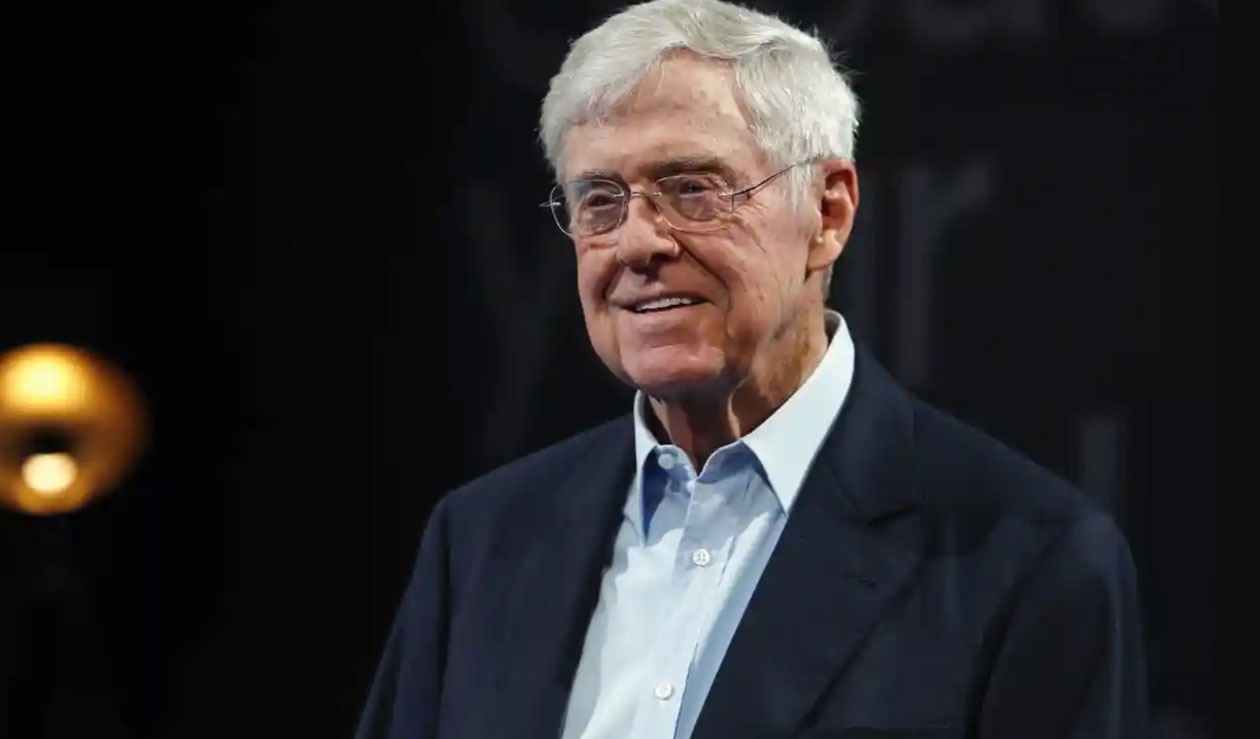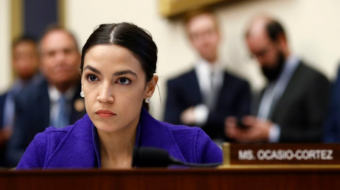
WASHINGTON—Even as workers and their allies hit the political hustings, campaigning door-to-door, explaining issues, phone banking and more, they face one big problem on the campaign trail: Hordes of corporate campaign cash fueling the drives of anti-worker—and anti-democracy—politicians.
That’s no surprise. For decades, the corporate class, their lobbyists, and their trade associations have outspent unions by ratios of 10- or 11- or 13-1 or more on the campaign trail. But the scale of it, and the ideology behind the moguls’ money, is.
Workers and their allies, including civic groups such as Public Citizen and lawmakers such as Sen. Sheldon Whitehouse, D-R.I., and the House’s slim Democratic majority, have tried in this Congress to curb this tsunami that overwhelms them in every election year.
“Right-wing groups backed by wealthy donors… have used the corrosive power of money to drown out the voices of working people,” AFL-CIO Legislative Director Bill Samuel wrote in a 2021 letter to lawmakers, urging curbs on the tidal wave of campaign contributions.
But the same corporate interests that fund anti-worker lawmakers and anti-democracy politicians—two virtually overlapping groups—also successfully lobbied their Republican political puppets to use Senate filibuster threats to stop reform efforts. The GOP senators didn’t even let reform efforts come up for discussion, much less a final roll call vote.
There are several big differences, though, as the November 8 election approaches. One is the sheer size of total spending–$9.3 billion and counting, a Public Broadcasting System analyst reported. That’s almost double the figure from the last off-year election in 2018.
A second is $1.3 billion of that is “dark money” from unaccountable sources. And most of the dark dollars go for lie-filled negative ads.
Even worse, as Rebecca Jacobs and Angela Li of Citizens for Responsibility and Ethics in Washington (CREW) point out, $40 million of all corporate campaign donations—those actually in public records–went to 145 of the 147 House and Senate Republicans who voted against certifying Democrat Joe Biden’s electoral vote win in the 2020 presidential balloting. Another $22.6 million went to Republican campaign finance committees, which help the 145.
CREW, Jacobs, and Li named the 145 “The Sedition Caucus,” because those senators and representatives voted against Biden even after the Jan. 6, 2021, Trumpite invasion, insurrection, and coup d’état attempt at the U.S. Capitol, which disrupted the electoral vote count for hours—and which killed five police officers afterwards and injured 140 more.
It’s that same phalanx of right-wing Republicans that benefits from the flood of corporate cash in this fall’s campaign.
CREW’s researchers also dug up the identity of the biggest givers to The Sedition Caucus.
Including cash directly to lawmakers, to their “leadership PACs” and to the Republican Party campaign finance committees—all making up the $62.6 million total–the biggest buyer of corporate influence with Sedition Caucus members was Koch Industries. It gave $1.047 million to 80 caucus members, plus PACs and party committees.
Boeing ($908,000 to 75 members plus committees) was second, followed by Home Depot ($675,000 to 66 members plus committees), Valero Energy ($667,500 to 34 members plus committees), UPS ($589,500 to 81 members plus committees) and Lockheed Martin ($552,000 to 92 members plus committees).
Boeing, Koch, and Valero are notorious for rocky relations with workers and unions. Boeing engaged in an extended war against the Machinists. It moved 787 production from Seattle to anti-union South Carolina specifically to escape IAM. Valero fought the Steelworkers over the firm’s refinery fires and explosions. Koch battles unions in some of its enterprises.
What CREW and other campaign finance monitors have yet to tally is how much more of that corporate cash has gone to other worker foes, outside those Republican incumbents, who are also 2020 election deniers and democracy enemies. But the total is in the millions.
As one example, $10 million, most of it from Republican big givers, has flowed into one down-ballot race alone, for Arizona Secretary of State. There, a 2020 Trumpite and election denier, Republican Mark Finchem, seeks to win control of the state’s balloting in 2024.
A danger to workers
This trove of corporate campaign cash is a danger to workers, as it can overwhelm pro-worker hopefuls and drown them out, or keep them off the airwaves. It’s also, in so many words, legalized bribery. One of the most notorious corporate donors, former Oval Office occupant Donald Trump, even said so in a 2015 debate among GOP presidential hopefuls.
“I was a businessman. I give to everybody,” Trump said then. “When they call, I give. And you know what? When I need something from them, two years later, three years later, I call them. They are there for me. And that’s a broken system.”
And using contribution dollars from big oil as an example, the Autumn 2022 edition of AFT Health Care magazine commented:
”Campaign finance laws allow the oil and gas industry to help elect candidates who support efforts to undermine environmental protections, drive pro-industry legislation, and secure taxpayer subsidies to the industry.
“Recent studies show every $1 the industry spends on campaign contributions and lobbying efforts returns $100 back in subsidies—a 10,000% return on investment.
“Corporations’ purchase of political influence allows them to persistently and systematically hinder people from political participation,” AFT Health Care said.
The AFL-CIO, Public Citizen, Common Cause, Democracy 21, the Democratic-run House and Sens. Whitehouse, D-R.I.—a former state Attorney General who specializes in revealing campaign finance abuses—and Amy Klobuchar, DFL-Minn., tried to dam the flood. Senate Republican filibuster threats, arranged for corporate contributors, stopped them.
“For years, right-wing groups backed by wealthy donors have been working aggressively to suppress the right of every American citizen to cast a ballot,” Samuel wrote in 2021, urging lawmakers to support HR1, the For The People Act, which would have curbed the cash. The filibuster threat killed it in the Senate.
“They have supported laws to make it harder to register and to vote and they have used the corrosive power of money to drown out the voices of working people,” Samuel added.
Besides expanding voting rights—to protect democracy—HR1 “would create a system of public financing powered by small donations and require super PACS and dark money political organizations to make their donors public,” he explained.
On September 13, Whitehouse reintroduced the Disclose Act, to “shine light on the sources of secretive corporate slush funds flooding into our elections,” said Public Citizen.
“We will try over and over again to get enough Republican support in the Senate to pass the Disclose Act, and lift the veil of secrecy over money in politics,” Public Citizen Executive Vice President Lisa Gilbert added. “Americans on both sides of the aisle think this is common sense, there is no reason not to move forward.”
But the Senate’s Republicans rejected the common sense, leaving workers, their allies, and the candidates they back exposed to the flood of anti-worker ads fueled by corporate cash. When the Disclose Act came to the Senate on September 19, a motion to “proceed to debate” on it—never mind an actual roll-call vote—failed on a partisan 49-49 tie: 47 voting Democrats and both independents for it, 49 Republicans opposed.












Comments